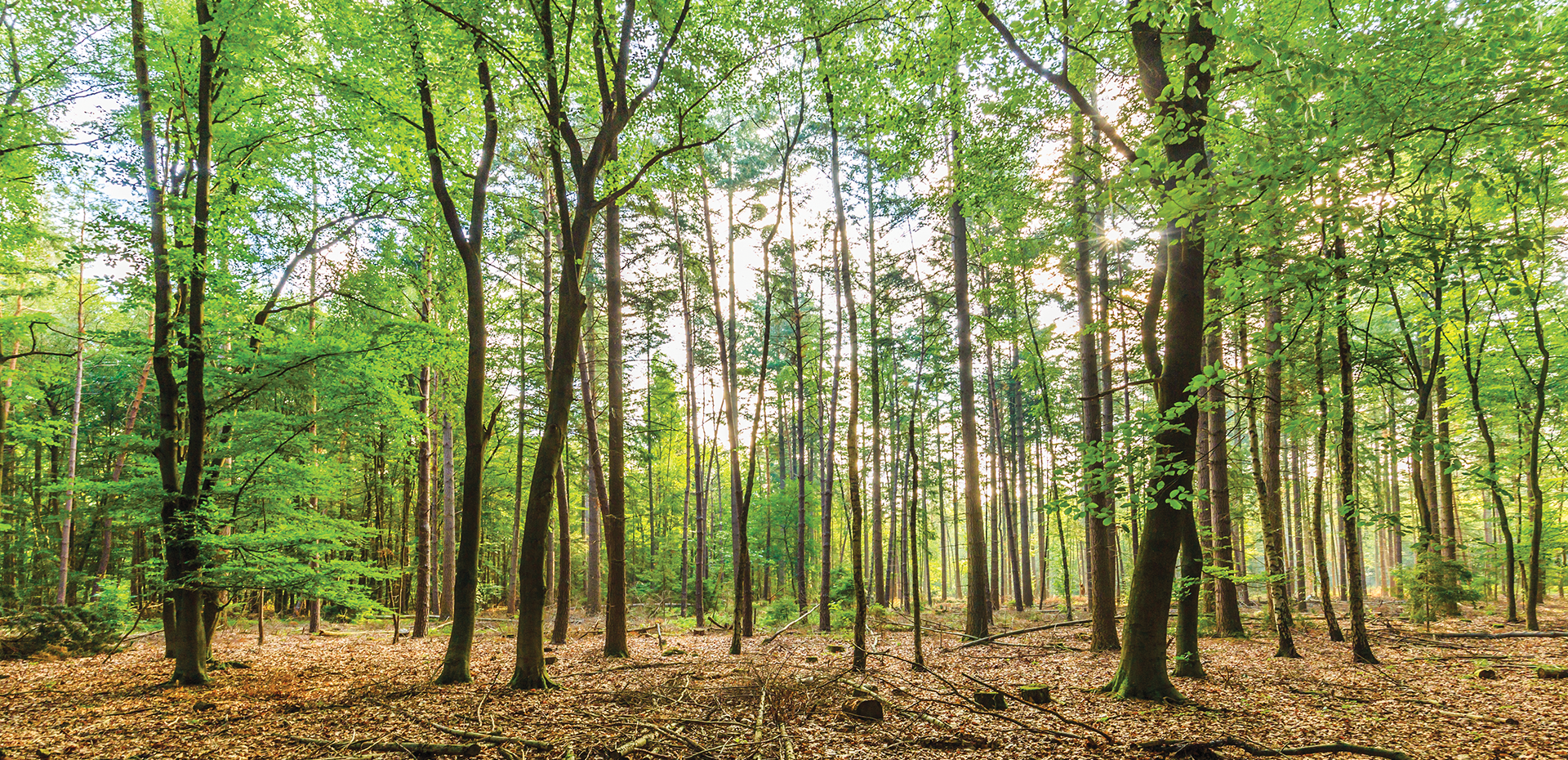


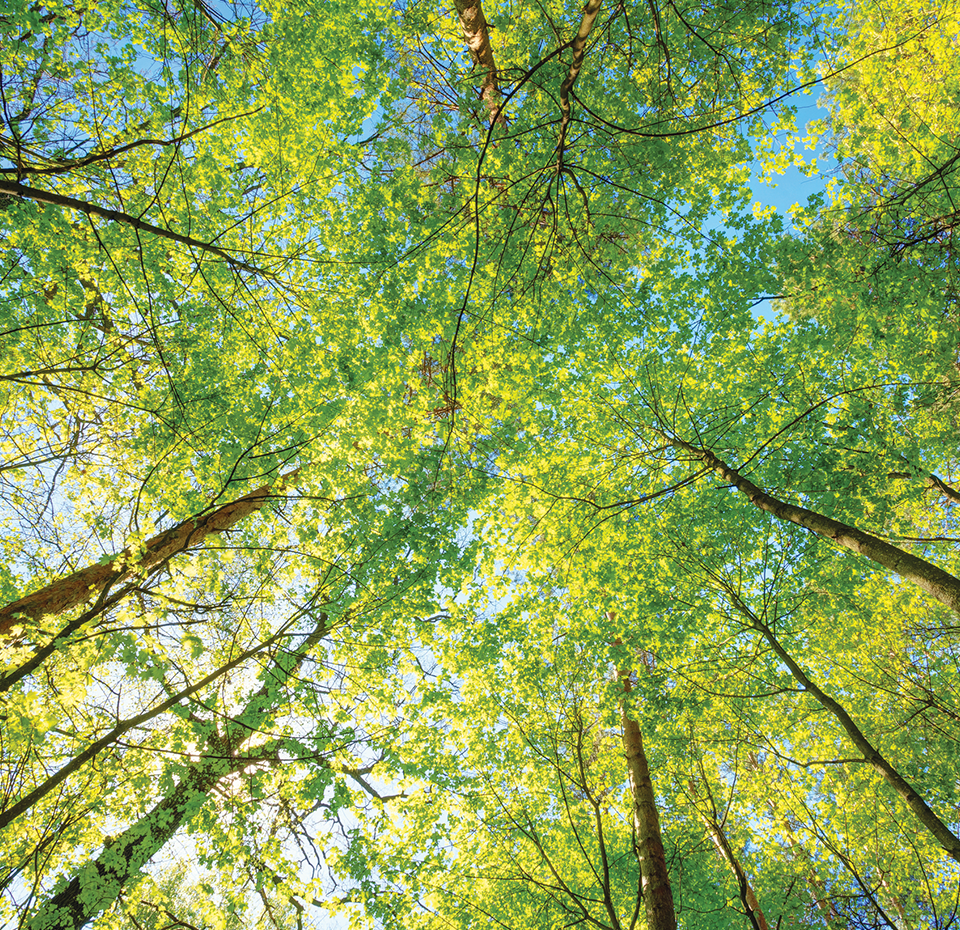
WE MAKE CONCERTED EFFORTS TO UPHOLD ENVIRONMENTAL RESPONSIBILITY AND REDUCE EMISSIONS BY PURSUING A LOW-CARBON GROWTH PLAN. INCREASING THE USAGE OF RENEWABLE ENERGY, CREATING ECO-FRIENDLY PROCESSES, AND REDUCING ENERGY AND WATER CONSUMPTION IN OUR ACTIVITIES ARE OUR FOCUS AREAS. WE HAVE ROBUST POLICIES AND PRACTICES IN PLACE TO SUPPORT RESPONSIBLE MANUFACTURING AND EFFICIENT RESOURCE MANAGEMENT WITH ADHERENCE TO ALL APPLICABLE LAWS AND REGULATIONS.
WE HAVE IMPLEMENTED QUALITY, ENERGY, ENVIRONMENTAL, OCCUPATIONAL HEALTH AND SAFETY (QEEHS) POLICY COVERING ALL OPERATIONS. OUR PLANTS ARE ISO 14001 AND ISO 50001 CERTIFIED.
Share of renewable energy in total electricity consumed in FY 2022-23
(30% of total contract demand)
Solar power generation capacity
In
FY 2022-23
Emissions mitigated with solar usage In FY 2022-23
Reduction in specific energy intensity as compared to FY 2021-22 & 61% reduction in specific energy intensity as compared to Base FY 2012-13
Reduction in Scope 1 intensity as compared to base year 2012-13
Reduction in Scope 2 intensity as compared to base year 2012-13
Reduction in total Scope 1 & 2 intensity as compared to base year 2012-13
Reduction in GHG emissions
through 42 electricity reduction
initiatives In
FY 2022-23
Reduction in Energy intensity as compared to base year 2012-13
Reduction in FO & LDO fossil fuel from base year
Reduction in diesel consumption from base year
CO2 mitigated through sustainable measures, which is equal to 10% of all GHG emissions from Base FY12 to FY22 (8.08 Lakh MT)
We continue to focus on the following areas in alignment with the Paris Agreement for climate change:
Climate Change Mitigation Strategy
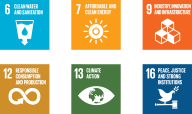
Energy efficiency and emissions reduction are the key drivers of our ESG strategy to combat climate change. We use technology-based innovations to reduce carbon footprint, enhance fuel efficiency, optimise electricity consumption, and deploy renewable and alternative clean energy sources to reduce indirect energy usage.
To reduce indirect energy consumption in FY 2022-23, we have undertaken several efforts including improving the operating efficiency of industrial machinery. We are putting in state of-the-art equipment and upgrading older ones to make them more energy efficient. In the coming year, we intend to install additional 4.5 MW solar power plant in Alwar plant taking our overall solar capability to ~16 MW which will help to meet 67% electricity supply from renewable sources against contract demand in the plant. This will also help increase our renewable footprint and reduce Scope 2 emissions. Since FY 2012-13, we have offset around 31,115 MT of CO2 through Renewable Energy Uses, 31,843 MT CO2 Mitigation through Energy Saving initiatives, through 18 Lakh trees plantations, 16,610 MT CO2 Mitigation through EPR implementation. We have mitigated a 79,568 MT of CO2 (Eq. 10% of Overall GHG Intensity from FY 2012-13 to FY 2022-23) from the environment through our sustainable initiatives. The production units are designed to maximise the use of natural light and are equipped with a sensor-triggered automated lighting system.
We have implemented ISO:50001 energy management system and completed 42 energy-saving initiatives in FY 2022-23. This has resulted in total energy savings of 2,139 MWh and mitigation of 1,711 MT of CO2 . We had replaced all Light Diesel Oil (LDO) fuel in Alwar plant. From FY 2023-24, we have Transitioned from High Speed Diesel to Piped Natural Gas (PNG) in Haridwar Fan factory which will offset ~ 550 MT of CO2 and ~ 5.5% scope 1 emission norms. ~5.5% Scope 1 emission norms. We are also exploring Bio-based fuels uses in our operation towards emission reduction strategy.
Our manufacturing facilities at Ghiloth and Alwar, Rajasthan, have been accorded the Indian Green Building Council (IGBC) Gold-rated certification, under the IGBC Factory Building Rating system. In the coming years, we are planning to certify more green buildings.
Over the years, we have been working to reduce our carbon footprint and use of natural gas-based furnaces. In FY 2022-23, we had reduced Scope 1 Intensity by 72% compared to base year 2012-13.
We have implemented ISO:50001 energy management system and completed 42 energy saving initiatives, saving 1,616 tCO2 e of emissions in FY 2022-23 and 59% Scope 2 Intensity reduction from the base year 2012-13.
We use a variety of raw materials including different metals, plastics, resins, and PVC, among others. We are constantly engaged in reducing consumption of these resources while looking at alternative sources. The value of packaging materials made using recycled paper (Cartons, Corrugated Shippers, Paper Pulp Moulded tray) for FY 2022-23 is ₹ 213 crores which is 3% of total buying material value.
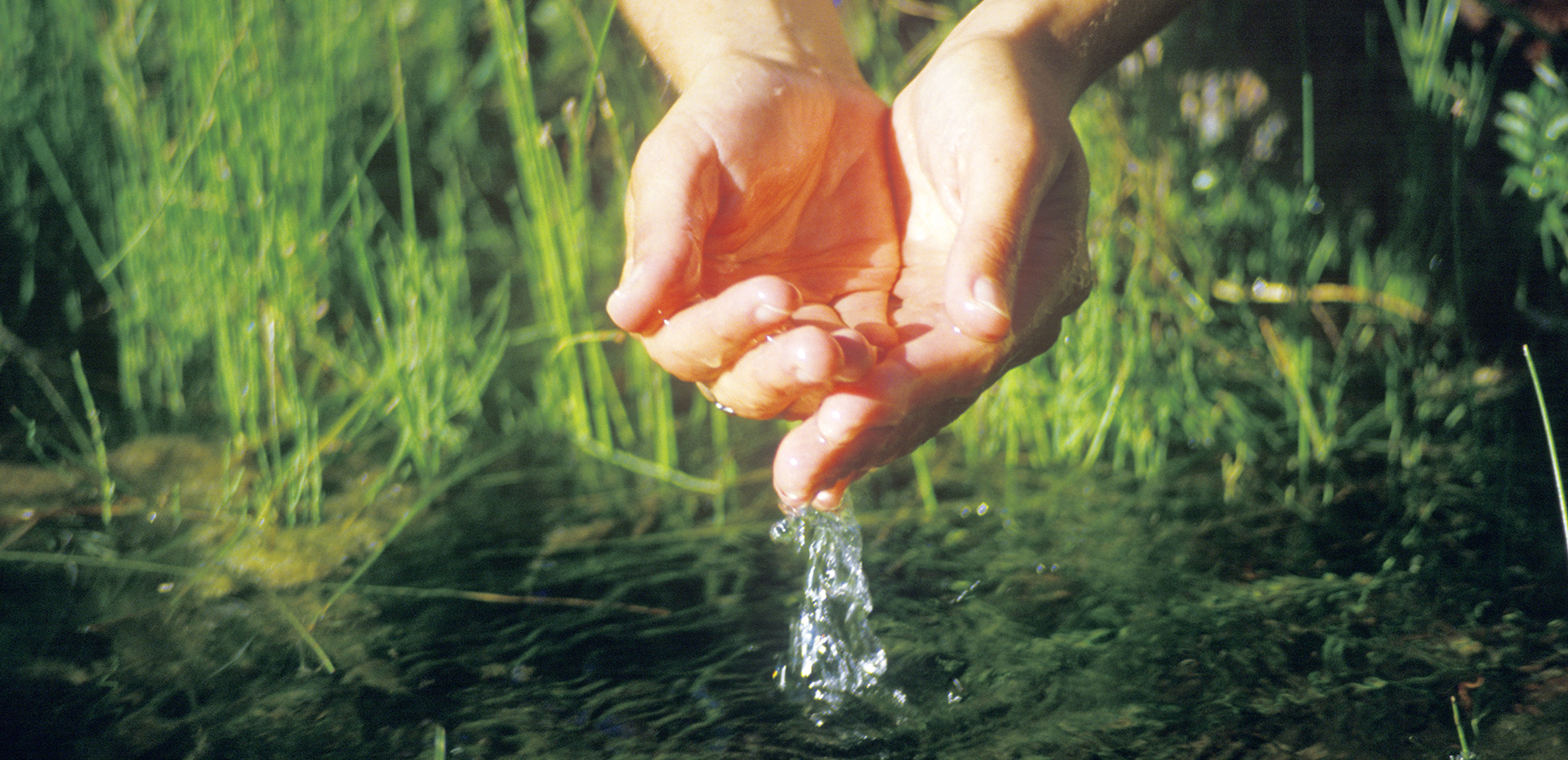
We are progressively including material circularity in our product design and processes while ensuring high quality and durability. We also undertake rigorous testing of our products and provide post-sales services to increase their shelf life, thereby reducing requirements for natural resources. Our all-plant production rejection material utilises in production with the help of own moulding facility and through circular economy with suppliers. We have developed a separate Waste Management wing which supervises the waste management process. All end-of-life products coming due to damage and warranty are dismantled and again reused and recycled in production with the circular economy infrastructure after passing several quality and product safety tests.
We believe that water usage sensitisation along with infrastructure that supports responsible water use is key to water conservation. We have set up dry powder-based paint shops instead of the conventional water-based paint shops, flow regulated taps, arrested water leakages and closed unnecessary water distribution points across plants. Pilot studies have been taken up to increase the use of recycled water for domestic use. Our fresh water consumption is for Utility and Domestic water consumption. We are cognisant of our operational water economics and have undertaken responsible water management practices. In a bid to become 2x water positive organisation by 2030, we are committed to implement the 3R (Reduce, Reuse and Recycle) principle for conservation of water. Our initiatives are directed towards conservation and optimal use of water as well as its after use treatment, discharging and recycling. For this, we have equipped our units with systems and processes which reduce water consumption during manufacturing. As part of our efforts to continuously reduce usage of raw water, Digital Water Flow meters have been installed across all units, besides Piezometers to check the water level. This is augmented with several rainwater harvesting structures to meet the production water demands and recharge the aquifers and underwater table. Along with water conservation, we also inculcate water treatment, recycling, and reuse practices. Our effluent treatment systems comprise a reverse osmosis process to increase the water quality to make it ready for recycling. The level of effluents are maintained well under the prescribed regulatory requirements. The recycled water is then used for various unit-level operations. We remain focussed on our goal of achieving resource-neutral operations and place a strong emphasis on water stewardship. We understand that water is a shared resource with surrounding communities, and we are committed to using it responsibly. Water is consumed in manufacturing operations that include process, domestic, and utility operations. We have deployed automatic water recirculation system in our factory kitchens for utensil cleaning in select plants to gauge water savings. All our factories are equipped with Sewage Treatment Plant (STP) and four of them are equipped with Effluent Treatment Plant (ETP) as well. Almost all of the treated water is reused within our premises to flush toilets or in developing greenbelt and plantation. We follow all the necessary applicable guidelines and directions on maintaining the standards of STP and ETP required by CPCB and SPCBs. Rainwater harvesting structures are installed at all our facilities and the water harvested is used for ground recharge.
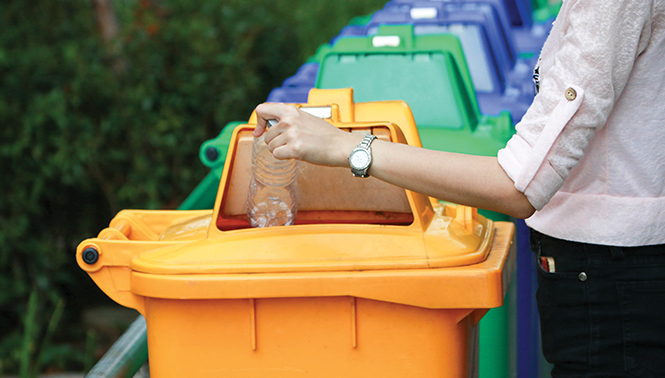
Waste and plastic waste management is a crucial element of our sustainability practices. We perpetually strive to incorporate the principles of a circular economy as part of our waste reduction strategy. We have partnered with several Governmental and Non-Governmental organisations to develop integrated systems, processes, and controls to manage both hazardous and non-hazardous waste and comply with the national and state level waste regulations.
In terms of Extended Producer’s Responsibility, we have taken a leadership position due to our efforts in plastic waste management. Havells is doing Extended producer responsibility in E-Waste and Plastic waste which means that we collect, process and recycle the desired amount of e-waste and plastic waste that we sell in product waste in a year as per E-waste and Plastic waste management rules in India, thereby complying with the Plastic Waste Management Rules, 2016. Our waste collection partners pick up plastic waste, thereby diverting them from reaching oceans and landfills.
We have collected a total of over 3,617 MT of plastic waste and 5,187 MT of E-Waste in FY 2022-23 directly from the end users and through tie-ups with waste management agencies.
We have collected 12,264 MT of E-waste from 2018-23 through 43 Collection centres pan India. Along with this, our plastic collection waste was 7,117 MT from FY 2021-22 to FY 2022-23. We have mitigated 16,610 MT CO2 through our EPR Program.
We have implemented waste segregation at sources. We have a stringent waste management system for hazardous and non-hazardous waste generated. We are strengthening our environmental protection policies by focussing on specific issues such as effective storage, handling, transportation, and disposal of hazardous waste generated at our units. Currently, all such waste is disposed of only through dealers authorised by Central/State Pollution Control Boards. During the year, we recycled 15,383 MT and reused 2,422 MT of non-hazardous waste including metal, rubber, and plastic scrap. During the year, there were no significant spills to be reported. We disposed 593 MT of hazardous waste.
Non-hazardous waste to landfill during FY 2022-23
Total hazardous waste sent to landfill during FY 2022-23
We do not conduct any business activity which has an irreversible or negative impact on biodiversity. Also, we do not have any operational sites near high biodiversity value areas or protected areas. We have been proactively working to preserve ecosystems and reduce the accelerated loss of biodiversity through various programmes. 1.8 million trees were planted in Madhya Pradesh, Development of Kanha Upvan land park in Alwar. We are also planning to perform a detailed biodiversity study of our all operations and locations to check the minimal impacts and prepare a roadmap towards becoming nature positive.
